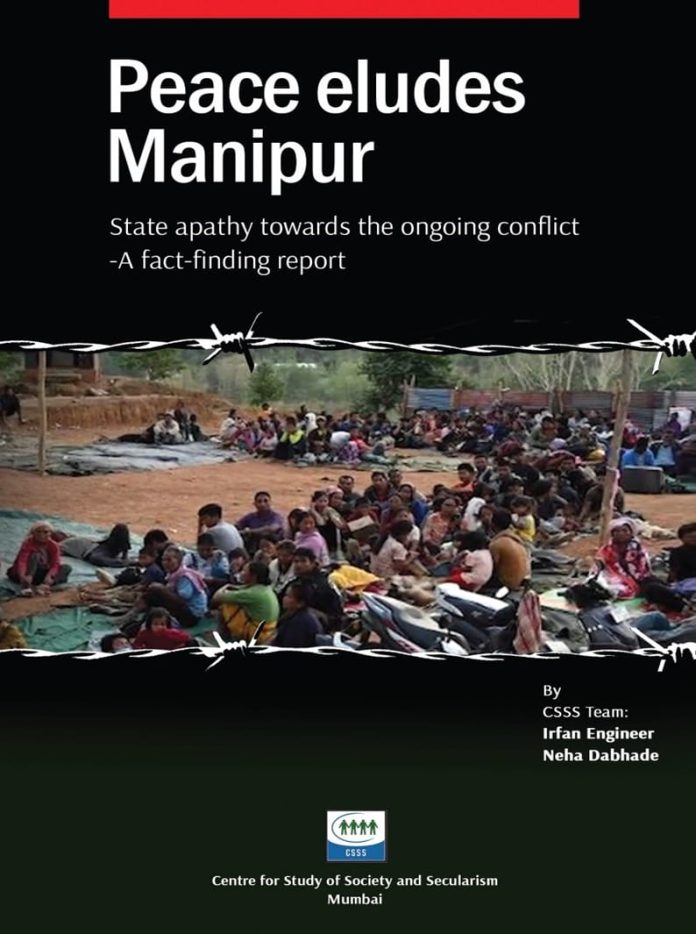Mumbai, Aug 24: The Centre for Study of Society and Secularism (CSSS) has published a crucial fact-finding report titled “Peace Eludes Manipur,” detailing the harrowing conditions and ongoing conflict in the state. Authored by Irfan Engineer and Neha Dabhade following their week-long visit to Manipur, the report underscores the severe humanitarian crisis that persists in the region over a year after violence first erupted.
The report reveals that over 70,000 people have been displaced due to attacks on their homes and villages, with approximately 45,000 of them belonging to the Kuki community. The majority of these displaced individuals continue to live in makeshift relief camps, enduring dire conditions with minimal sanitation, inadequate food supplies, and limited medical care. The camps are described as overcrowded, with residents forced to sleep on thin mattresses amidst the harsh winter cold.
The report further highlights the extensive destruction of places of worship, many of which remain vandalized and desecrated. It notes that both the valley and hill regions have been effectively ethnically cleansed, with boundaries between the two areas now functioning like “hard borders between hostile countries.”
Security is tightly controlled by different forces, with the Assam Rifles guarding the Kuki population and the Manipur Police overseeing the Meitei community, separated by at least seven security checkpoints.
The authors express deep concern over the escalating ethnic tensions and the hardening of community identities, which have made prospects for peace increasingly bleak. Harsh Mander, a former IAS officer and noted human rights defender, writes in the preface that the demands of the warring communities are “irreconcilable.” He outlines the Meitei community’s demands for an undivided Manipur, including Scheduled Tribe (ST) status, the implementation of an Assam-style National Register of Citizens (NRC) to identify and expel Kuki “infiltrators,” and the fencing of the border between Manipur and Myanmar. Additionally, the Meitei combatants seek the withdrawal of the Suspension of Operations agreement involving Kuki militant groups and the removal of the Assam Rifles, accusing them of favouring the Kukis.
The report concludes with a call for immediate action to restore peace in Manipur. The authors emphasize the need for a truth and reconciliation process based on mutual recognition of the suffering endured by all communities. They advocate for the establishment of a peace committee to initiate dialogue between the conflicting groups and urge the state administration to take firm action against hate speech and punish those responsible for the violence, including killings, mass rapes, arson, and the desecration of religious sites.
Ram Puniyani, a prominent social activist, praises the report for its in-depth analysis of the conflict, describing it as a “wake-up call” for the nation to address the rising tide of communal hatred. Mihir Desai, Senior Advocate and National Vice-President of the People’s Union for Civil Liberties (PUCL), underscores the report’s findings on the government’s failure to curb the violence, suggesting that the state’s inaction may have been deliberate. He expresses hope that the report will help bring the suffering of the Manipuri people to the forefront and contribute to the pursuit of lasting peace in the region.
The CSSS report concludes with a poignant reminder: “For all ethnic groups to acknowledge Manipur as a shared homeland, wherein each group respects the others as equals and co-inhabitants, is imperative for a sustainable resolution.”




